Nadiyeh Rouhi is a Balouch woman from Iran who is currently pursuing a PhD in medical physiology. Her journey has taken her from a small village in southern Iran to Germany and now to the U.S., where she is in her second year of doctoral studies. As the first girl in her family to attend university, Nadiyeh overcame numerous obstacles to follow her passion for medical physiology and immunometabolism. Her story is one of determination, resilience, and breaking barriers in pursuit of knowledge.
1. Could you please tell us a little bit about yourself?
My name is Nadiyeh Rouhi, and I am a single mom of two boys, PhD student and a Balouch researcher woman from Iran. Currently, I am pursuing a PhD in Medical Physiology and Biophysics in the United States. My passion lies in human medical physiology and Cardiovascular-renal disease. My journey began in Nasirabad, a small village in southern Iran, where I became the first girl in my family to attend university. Pursuing higher education was not easy, I faced strong opposition from both my family and society (hard and strong religionist and uneducated family and village) but I was determined to follow my own path. Initially, I wasn’t sure what field to pursue, so I enrolled at Chabahar Maritime University, the closest university to my village, and chose Fisheries as my major. However, during my studies, courses in general biochemistry and genetics sparked my fascination with DNA, genetics, and human anatomy. This newfound passion led me to pursue cellular and molecular biology and later specialize in medical physiology. My academic journey has taken me from Iran to Germany and now to the United States, where I am currently in the second year of my PhD program.
2. If you could describe your journey in three words, what would they be?
Dream, Believe, and Persevere
My journey has been defined by these three words. I imagine to dream beyond the limitations around me, believed in myself despite the challenges, and persevered with patience and determination to achieve my goals. Overcoming obstacles and pushing forward, step by step, has shaped the path to where I am today.
3. What are the foods, places, or traditions from your home country that you miss the most?
Oh, I miss everything about my country so much! The environment, the people, the food, the celebrations… The family closeness we have is unique, and I didn’t realize how special it was until I experienced other cultures. I especially miss Persian carpets, my mom’s cooking, and those late-night conversations with my sisters. The smells of fresh fish when my brother went fishing at night bring back so many memories.
4. Do your kids have a favorite dish from your home country, or do they prefer local foods?
My kids really love the Persian rice I cook with crispy Tahdig. I try not to add too many spices since they don’t like that, but they love the unique taste of Persian rice, especially the crispy bottom. It’s a comfort food for them.
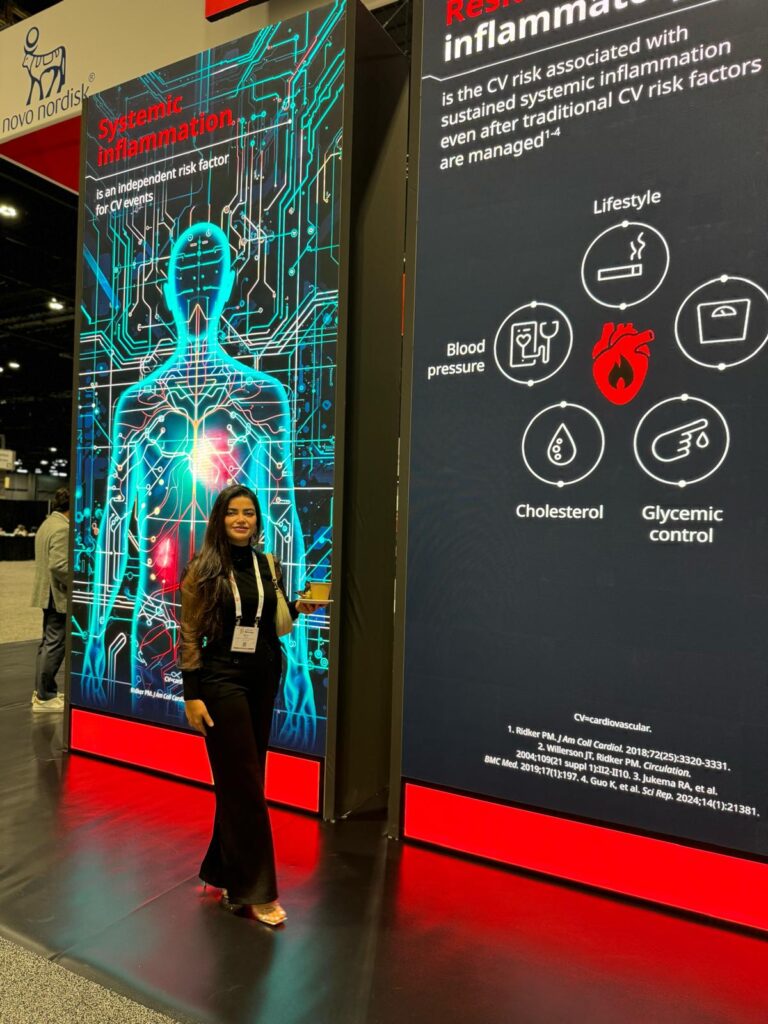
5. What do you love most about the country you live in now? What was the biggest surprise when you first arrived?
I currently live in Jackson, Mississippi, and transitioning here has been both exciting and highly challenging. Coming from the south of Iran and having previously lived in southwestern Germany, I found some surprising cultural similarities between Mississippi and my hometown. The strong emphasis on family values, the deep-rooted musical heritage, especially jazz and Black American culture, and the historical struggles for civil rights reminded me of the traditions and resilience of the people in Sistan and Balouchestan. One of the biggest surprises for me was how early people tend to marry here, which is quite similar to the traditions in the south of Iran. Another striking aspect is the strong presence of Christianity; the deep religious connection here made me realize that perhaps southern regions around the world often share this characteristic. I was also amazed by how proud people are of their flags and heritage.
What I love most is the warmth and friendliness of the people. I’ve found it much easier to integrate here compared to Europe, as people are incredibly welcoming and open. However, one thing that truly puzzled me is why the U.S. government doesn’t seem to invest more in this beautiful state, despite its rich history and cultural depth. But overall, I believe there are great opportunities here for those who work hard!
6. Is there anything from your home country that you wish people here could experience?
Yes! I would love for people here to experience our traditional Iranian music and food, dress. Our clothing and carpets have such deep cultural meaning, I tell stories of our people and history. I wish people could appreciate how meaningful these things are to us, not just as artifacts, but as part of our identity.
7. What is the funniest cultural difference you’ve experienced?
One of the funniest cultural differences I’ve experienced is how often people confuse Iran with Iraq when I tell them where I’m from. Their immediate reaction is usually, “Oh, Iraq?” and then I have to explain that Iran is a completely different country with a rich history and culture of its own. Seeing their surprised expressions and how quickly they try to process the difference always makes me laugh!
8. If you could give one piece of advice to your younger self, what would it be?
I would tell her to believe in herself and not to lose sight of her dreams. Take care of yourself, too and don’t always prioritize others. Sometimes, we get so caught up in doing things for others that we forget to nurture ourselves. Take time for yourself, whether it’s doing something you enjoy or just resting. It’s okay to put yourself first sometimes.
9. Has there been a moment in your life when you felt like you suddenly grew or changed?
The moment I realized I had truly changed was when I first arrived in Germany. I had just left Iran with my young children (in 3 and 5 years old), and it was an incredibly emotional moment. My mother had begged me not to go, even suggesting I leave the kids behind and come back for them later, but I knew that wasn’t an option. As I looked at my children, I thought to myself, “We either live together, or we die together.” Arriving in Germany, I was physically exhausted after surgery, carrying all our belongings and dealing with the overwhelming responsibility of caring for my kids in an unfamiliar country. I was completely alone, no one to call for help, and I couldn’t even speak the language well enough to get a taxi.
When we finally arrived and I saw Germany for the first time the next morning, I had a deep realization. I wasn’t the same person anymore. That moment marked a significant shift within me. I had grown stronger, more resilient, and I knew that from that day forward, I would be able to face whatever challenges came my way. I felt like I had transformed into a different version of myself, someone who could carry the weight of this new life with determination. It was a turning point in my journey, and I understood that I had truly evolved.
10. Is there anyone in your life who has been especially influential or has changed your path?
Another unexpected inspiration came from television. Growing up, I was deeply influenced by Dr. Quinn, Medicine Woman, a western American show that aired on our national TV in 1993. The character of Dr. Mike Quinn, a woman fighting against all odds to become a doctor in 19th-century America when few believed in female physicians, resonated with me. Her determination to carve out a place in a male-dominated society motivated me to keep pushing forward, no matter the obstacles. I even styled my hair like hers! My mom once said, “You’re Muslim, you need to cover your hair,” and it made me wonder if maybe my mom didn’t believe in Dr. Quinn’s character like the people in the TV show. Haha! But yes, she was definitely one of my biggest heroines during my childhood.
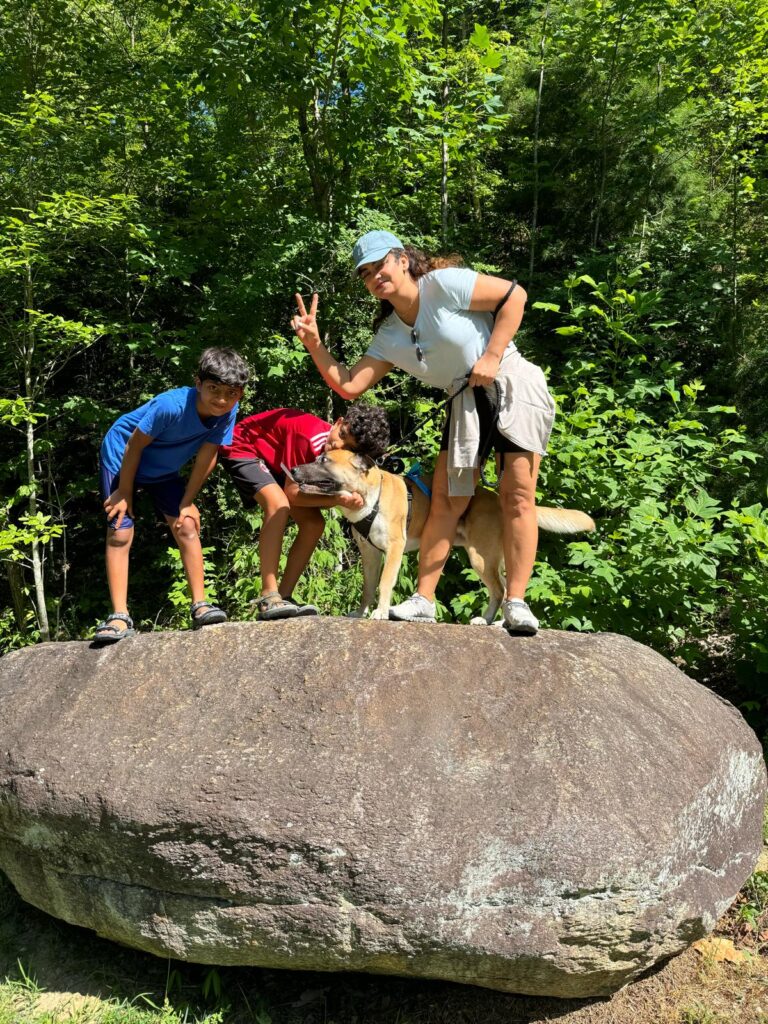
11. If you could give advice to a woman thinking about migrating for higher education, what would it be?
My advice would be to have a strategy and time management plan. Juggling different roles in life requires careful planning. Without proper planning, it can be overwhelming. It’s crucial to set clear goals and stick to them. And also, make sure to learn the skills necessary for success. It’s important to keep evolving and improving in order to meet your goals.
12. If you had to recommend someone for an interview like this, who would it be?
I was thinking about this today, and although I don’t have a name right now, I would like to recommend someone who has faced challenges and walked a difficult path. Someone from a different nationality, an African woman who has dealt with specific struggles, including challenges with language. Her story could be really inspiring to others who are facing obstacles in their own lives.
Nadiyeh’s journey is a testament to the power of perseverance and the courage to chase one’s dreams against all odds. From overcoming societal and familial expectations to excelling in a competitive academic field, her story serves as an inspiration for many—especially women pursuing higher education and scientific careers. Through her work and experiences, she hopes to encourage others to believe in themselves, take action, and carve out their own paths to success.

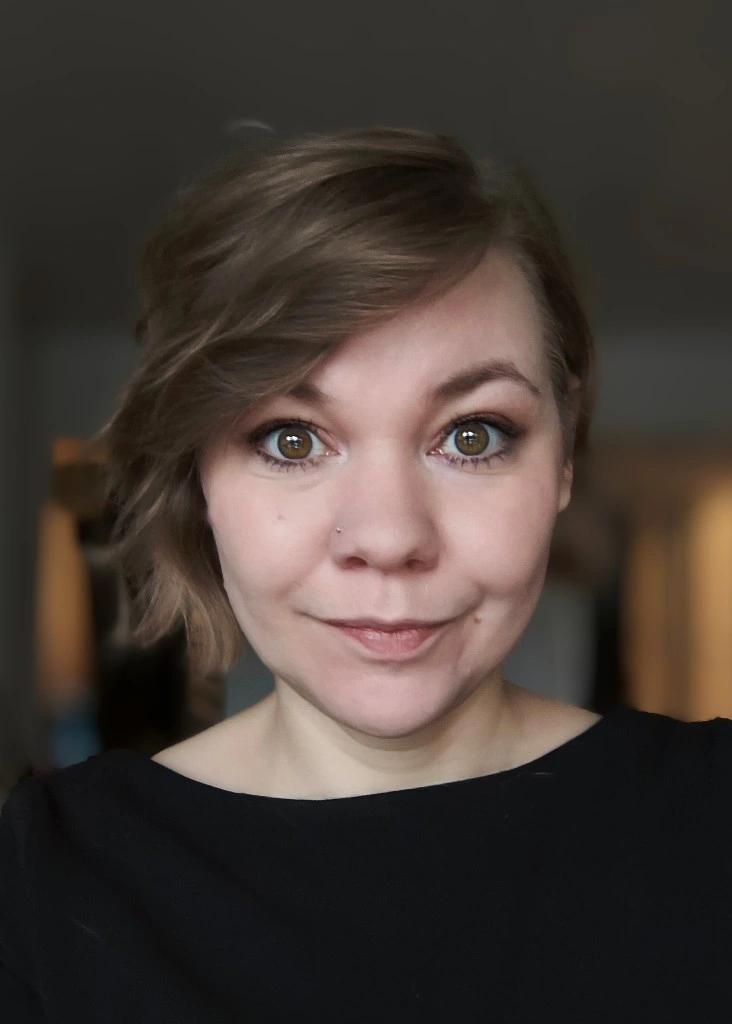
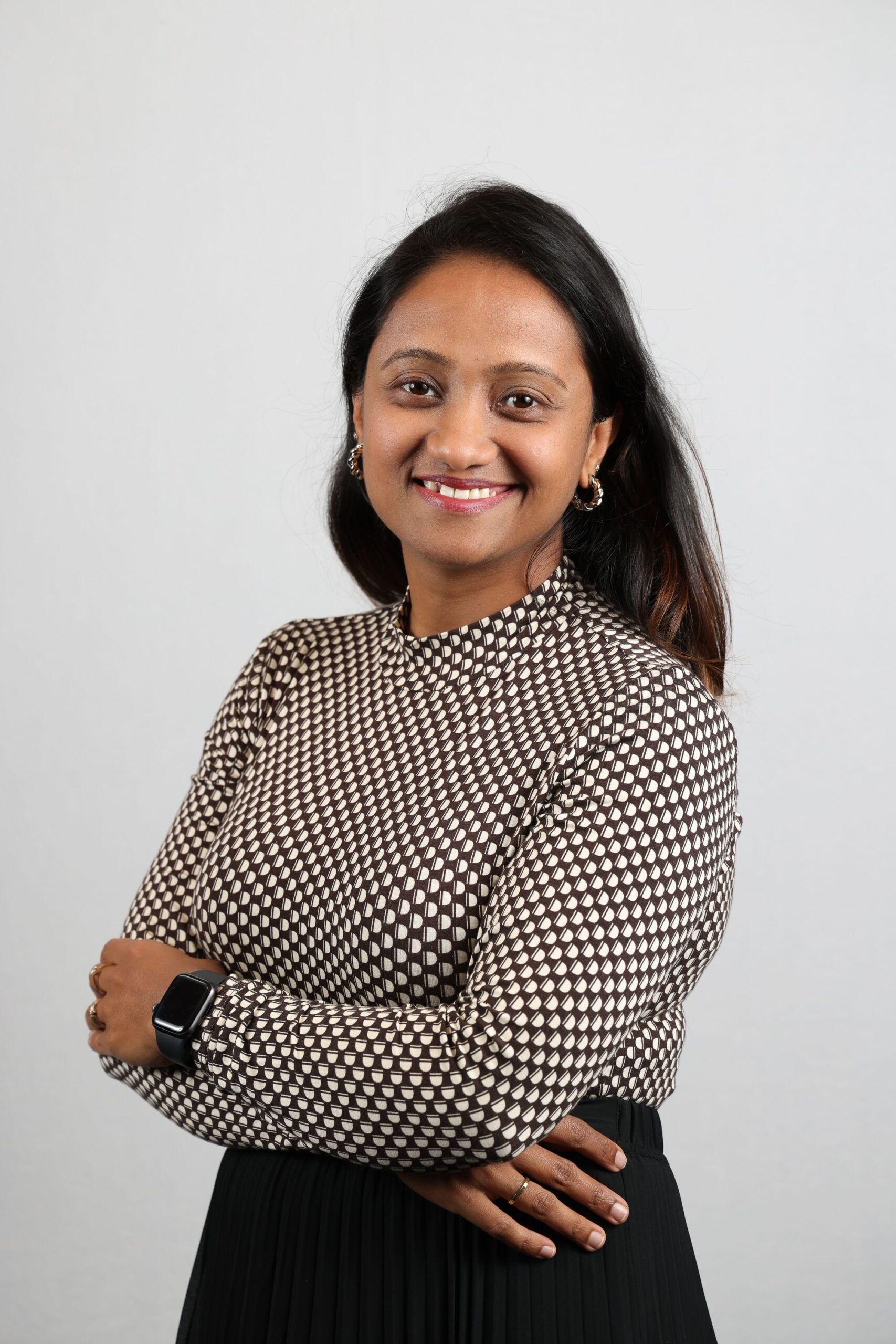
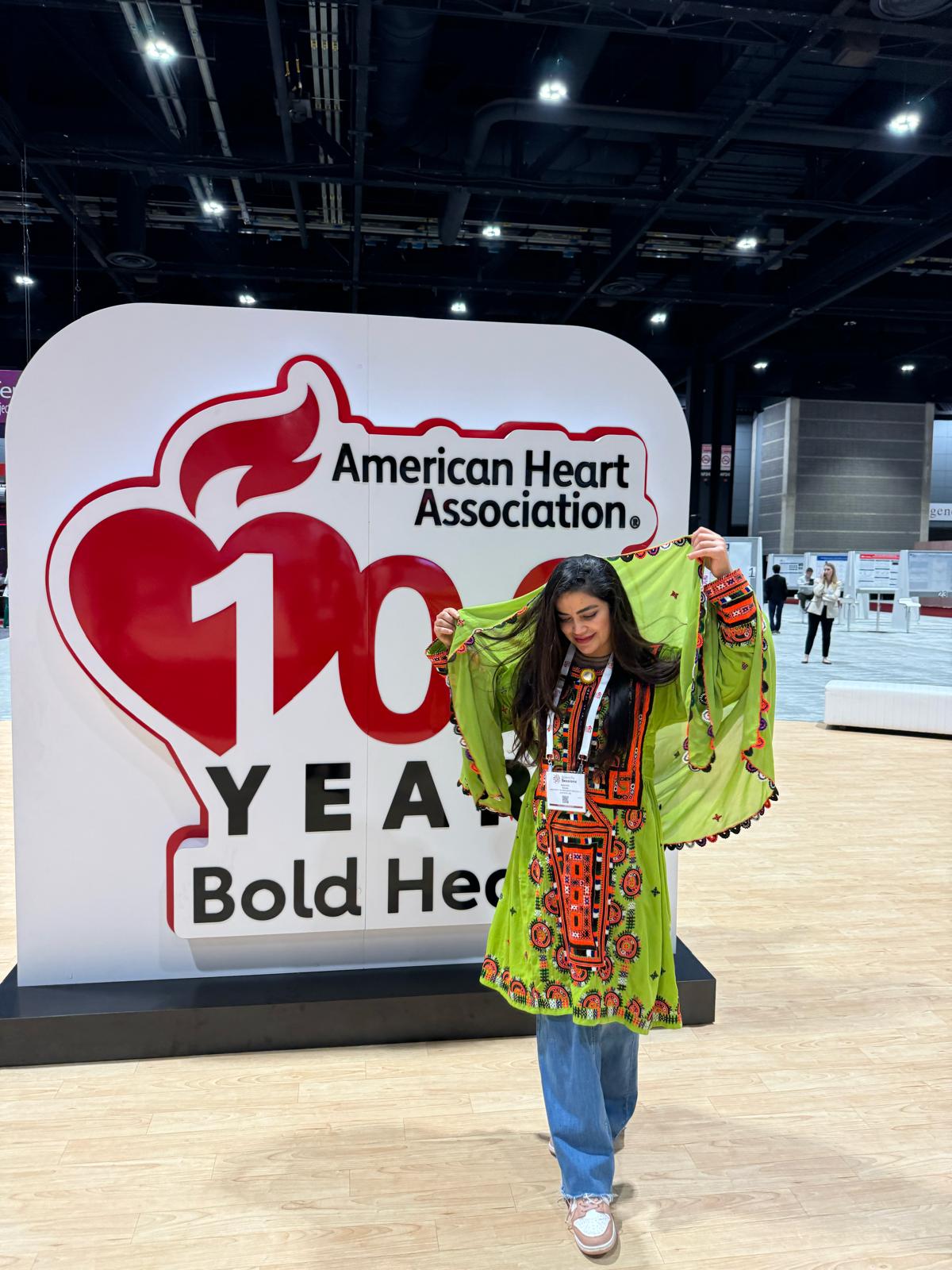
Leave a Reply